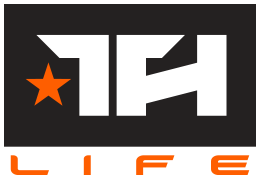I just got back from a glorious trip to Jackson Hole and the one thing I love most about going there, is the time I give myself to rest and recover.
Sure, I still do my regular workouts. I even went for a 6-mile run, but I also give myself lots of downtime and time away from the computer, emails and phone calls.
It's truly a time for me to unwind, and get connected to nature (check out the beautiful scenery on my run here). I literally feel the stress melt out of my system as soon as the plane hits the tarmac.
Here's the thing, I've spent decades helping people transform their lives through intense workouts and smart nutrition, but one thing I've learned is that you can't achieve your full potential without giving your body the rest and recovery it needs.
We live in a fast-paced world, always chasing the next goal, whether it's losing weight, gaining muscle, beating our own PR, or improving our athletic performance.
But let me tell you, progress doesn't happen solely during your grueling workouts. It happens when you take the time to allow your body to recover and repair.
Rest and recovery play a crucial role in overall health. Here's why:
1. Muscle Repair: When you work out, you create micro-tears in your muscles. It's during rest that these tears heal, making your muscles stronger and more resilient. Strength is actually built AFTER the workout in your recovery, not during.
2. Reduces Stress: High-intensity workouts release stress hormones. Rest and sleep help lower these levels, reducing overall stress and improving mental well-being. Doing things like deep breathing, meditating, or even reading can help lower your stress levels dramatically.
3. Prevents Injury: Overtraining can lead to injuries. Giving your body time to rest and recover can help prevent strains, sprains, and other workout-related injuries especially in your later years.
4. Enhances Performance: Adequate rest helps your body replenish glycogen stores, allowing you to perform at your best during workouts.
5. Sleep Quality: Restful nights are essential for your body to repair and regenerate. Poor sleep can lead to hormonal imbalances and other health issues. Getting outside in nature early in the morning, when the sun is first coming up, will also help you produce more Melatonin, the hormone responsible for deep sleep.
So, how can you incorporate rest and recovery into your routine? It's simple:
1. Get Quality Sleep: Aim for 7-9 hours of quality sleep each night. Make sure you have a wind down routine in place. Shut down your screen activity at least 1-2 hours before bed. I love taking hot Epsom salts baths before bed. The vasodialation that happens when your hands and feet are immersed in warm water, along with the magnesium in the Epsom Salts, slows down your heart rate and primes you for deep sleep.
2. Active Recovery: Engage in low-intensity activities like walking or yoga on rest days to keep your body moving without stressing it. We have some incredible recovery programs inside Power Nation. Movement IQ and Yoga Shred are two of my favorites when it comes to helping our bodies recover.
3. Proper Nutrition: Fuel your body with a balanced diet that supports recovery and muscle repair. A whole foods, anti-inflammatory diet will do wonders for your body’s recovery. Make sure to eat plenty of protein after a strength workout for the best muscle repair. If you want to learn more about the Anti-Inflammatory Diet, check out our Anti-Inflammatory Nutrition and Recipe Guide.
4. Listen to Your Body: If you're feeling fatigued or experiencing pain, don't push through it. Rest and recover instead and let go of any guilt that comes along with a rest and recovery day, it’s not worth it!
In conclusion, if you want to achieve your health and fitness goals, don't neglect the importance of rest and recovery. It's not about doing more; it's about doing it smarter.
Your body will thank you, and you'll be on your way to becoming the best version of yourself. So, remember, folks, it's not just about the sweat and hard work – it's also about the rest and recovery that follows. Keep pushing play, but also remember to hit pause when your body needs it!
